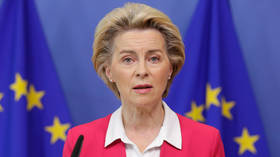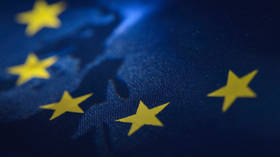EU outlines its priority on Ukraine

Putting an end to the war in Ukraine is the EU’s chief concern at present, but Kiev’s bid to join the bloc will be reviewed by member states, Brussels has announced, as Russia’s armed forces continue to attack the Eastern European nation.
Speaking at a press conference in Bucharest on Thursday, European Commission President Ursula von der Leyen weighed in on the former Soviet republic’s application to join the ranks of the 27-member bloc, as well as Georgia and Moldova’s own efforts to obtain candidate status.
“There is no doubt that the brave people who defend our values with their lives belong in the European family. Indeed, [Ukrainian President Volodymyr Zelensky] sent a letter [of] application, [and] by that, he has set a process in motion.”
She added that the matter would be “discussed with member states,” but insisted that, right now, the focus was on “ending this horrible war.”
Her remarks come after Zelensky inked the formal accession bid on Monday. In a video address the same day, he insisted Kiev’s goal was “to be with all Europeans and, most importantly, to be equal. I’m sure that’s fair. I am sure we deserve it.”
European Parliament President Roberta Metsola said the EU welcomed Ukraine’s application for candidate status and it would “work towards that goal,” adding, “We must face the future together.” However, admission is often a lengthy process, with potential members having to meet specific criteria.
In 2019, an amendment was adopted into Ukraine’s constitution enshrining EU and NATO membership as one of its strategic objectives under then-president Petro Poroshenko. Moscow vehemently opposes its neighbor’s ambitions to join the US-led military bloc and has looked to obtain security guarantees that would rule out the possibility.
Since Kiev’s bid for EU membership, Georgia’s ruling party has announced it will “immediately” apply to join the bloc. The chair of the Georgian Dream party, Irakli Kobakhidze, said on Wednesday the decision had been made “based on the overall political context and the new reality.”














